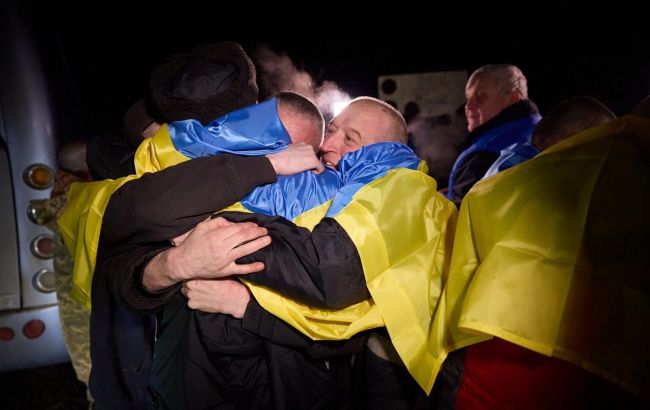Kremlin uses issue of prisoner exchanges to destabilize situation in Ukraine
 Russia is trying to blame Ukraine for the breakdown of prisoner exchanges (photo: armyinform.com.ua)
Russia is trying to blame Ukraine for the breakdown of prisoner exchanges (photo: armyinform.com.ua)
Russia has accused Ukraine of halting prisoner exchanges for several months, attempting to stoke discontent within Ukrainian society and divert Western support, according to a report by the Institute for the Study of War (ISW).
The report highlights that Russia’s Human Rights Commissioner Tatyana Moskalkova accused Ukraine of making groundless demands, which she claimed led to the pause in prisoner exchanges over recent months. She added that Russia is doing everything possible to maintain dialogue with the Ukrainian government and the International Committee of the Red Cross (ICRC) regarding prisoners of war.
In contrast, in November 2023, Petro Yatsenko, a representative of Ukraine's Coordination Headquarters on POW Affairs, noted that Russia had already suspended prisoner exchanges in the summer of 2023 for an unspecified reason.
On May 29, Radio Svoboda reported that Ukraine was forced to open a third camp for Russian POWs, partly due to de facto blocking of exchanges by the Russian side, and partly due to an increase in the number of Russian deserters becoming POWs. This aligns with several recent statements by Ukrainian officials, indicating that Russian authorities are resisting the continuation of prisoner exchanges.
The ISW report also notes that in the months following the last exchange in February, Russia has committed various abuses against Ukrainian POWs. These include extrajudicial executions and using POWs as human shields on the battlefield - both violations of the Geneva Convention on Prisoners of War. There has also been evidence of a black market for selling Ukrainian POWs to Russian paramilitary groups.
Furthermore, the report states that Russia is deploying a battalion composed mainly of Ukrainian POWs in combat operations in Ukraine, another blatant violation of the Geneva Convention.
The ISW suggests that Moskalkova's accusations against Ukraine for halting the exchanges may be an attempt to rhetorically shift the blame to Kyiv and obscure the numerous well-documented abuses by the aggressor against Ukrainian POWs.
"Moskalkova's accusation that Ukraine is the party responsible for the cessation of POW exchanges may be an attempt to rhetorically shift the blame towards Ukraine and obfuscate a litany of well-documented Russian abuses of Ukrainian POWs, potentially to stoke discontent in Ukrainian society or to discourage Western support for Ukraine. The Kremlin appears to be using the politics of POW exchanges as another rhetorical device to undermine Ukrainian decision-making," the ISW report concludes.
Prisoner exchange between Ukraine and Russia
On January 3, 2024, the largest prisoner exchange since the start of the full-scale war took place, with 230 defenders returning home.
The most recent prisoner exchange between Ukraine and Russia occurred on February 8, 2024, facilitated by the United Arab Emirates. In this 100-for-100 swap, 49 members of Ukraine's National Guard, 25 border guards, and 26 Armed Forces servicemen, including 11 territorial defense fighters, returned home. At least 28 of those freed were injured or seriously ill.
On January 24, Ukraine and Russia had planned to conduct the 50th prisoner exchange, but it was thwarted by the crash of an Il-76 plane near Belgorod. This disrupted exchange was set to be one of the largest during the war.
Meanwhile, over 400 Ukrainian women, most of whom are civilians, remain in Russian captivity.

